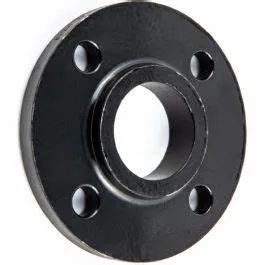-
Cangzhou Yulong Steel Co., Ltd.
-
Phone:
+86 13303177267 -
Email:
admin@ylsteelfittings.com
- English
- Arabic
- Italian
- Spanish
- Portuguese
- German
- kazakh
- Persian
- Greek
- French
- Russian
- Polish
- Thai
- Indonesian
- Vietnamese
- Zulu
- Korean
- Uzbek
- Hindi
- Serbian
- Malay
- Ukrainian
- Gujarati
- Haitian Creole
- hausa
- hawaiian
- Hebrew
- Miao
- Hungarian
- Icelandic
- igbo
- irish
- Japanese
- Javanese
- Kannada
- Khmer
- Rwandese
- Afrikaans
- Albanian
- Amharic
- Armenian
- Azerbaijani
- Basque
- Belarusian
- Bengali
- Bosnian
- Bulgarian
- Catalan
- Cebuano
- China
- China (Taiwan)
- Corsican
- Croatian
- Czech
- Danish
- Esperanto
- Estonian
- Finnish
- Frisian
- Galician
- Georgian
- Kurdish
- Kyrgyz
- Lao
- Latin
- Latvian
- Lithuanian
- Luxembourgish
- Macedonian
- Malgashi
- Malayalam
- Maltese
- Maori
- Marathi
- Mongolian
- Myanmar
- Nepali
- Norwegian
- Norwegian
- Occitan
- Pashto
- Dutch
- Punjabi
- Romanian
- Samoan
- Scottish Gaelic
- Sesotho
- Shona
- Sindhi
- Sinhala
- Slovak
- Slovenian
- Somali
- Sundanese
- Swahili
- Swedish
- Tagalog
- Tajik
- Tamil
- Tatar
- Telugu
- Turkish
- Turkmen
- Urdu
- Uighur
- Welsh
- Bantu
- Yiddish
- Yoruba

Nov . 29, 2024 21:56 Back to list
Exploring the Applications and Standards of API 5L Pipeline Technology
Understanding API 5L Pipe A Comprehensive Guide
The API 5L pipe standard has become a cornerstone in the oil and gas industry, serving as a crucial specification for the production of line pipes. Developed by the American Petroleum Institute (API), this standard outlines the requirements for steel pipes that are primarily used in the transportation of oil and gas from production sites to refineries and distribution points. As such, understanding API 5L pipe, its specifications, and applications is vital for professionals within this sector.
Overview of API 5L Pipe
API 5L pipes are categorized primarily into two grades L and X. The letter 'L' stands for 'Line' and generally refers to lower yield strength, while 'X' denotes higher yield strength. For example, a pipe designated as X42 has a minimum yield strength of 42,000 psi, whereas an L grade might have a lower yield strength, indicating that it is more suitable for less demanding environments.
Field modifications in the API 5L standard include the designation of pipe bodies, pipe ends, and additional specifications. The most common grades used in the industry include X42, X52, X56, X60, X70, and X80, with higher grades often utilized in more challenging applications, including high-pressure and high-temperature environments.
Chemical and Mechanical Properties
The API 5L standard specifies chemical composition and mechanical properties to ensure that the pipes are fit for purpose. For carbon steel pipes, requirements typically include the percentage of carbon, manganese, phosphorus, and sulfur, among others. Mechanical properties include yield strength, tensile strength, elongation, and Brinell hardness, which significantly affect the pipe's performance under various service conditions.
Categories and Types of API 5L Pipes
API 5L pipes are further categorized into two main specifications PSL 1 and PSL 2. PSL 1, or Product Specification Level 1, represents the basic requirements for pipes and is sufficient for many non-critical applications. On the other hand, PSL 2 includes more stringent requirements regarding chemical composition, mechanical properties, and testing, making it ideal for high-risk environments where failure is not an option.
api 5l pipe

Moreover, API 5L pipes can be manufactured in either seamless or welded forms. Seamless pipes are produced through a process that involves piercing a solid steel billet, allowing for a uniform structure and superior strength. Welded pipes, on the other hand, are made by rolling steel sheets and welding them together. While they are often less expensive, they may not perform as well under high-pressure conditions compared to their seamless counterparts.
Applications of API 5L Pipe
The versatility of API 5L pipes makes them applicable in various sectors, particularly in the oil and gas industry. They are used for transporting crude oil, natural gas, and other hydrocarbon fluids. Additionally, API 5L pipes find applications in water treatment plants, construction projects, and chemical processing industries where durability and reliability are paramount.
Moreover, these pipes are utilized in the construction and maintenance of pipelines, where their ability to withstand pressure and corrosion plays a critical role in operational efficiency and safety.
Quality Control and Testing
Quality control is an essential aspect of API 5L pipe manufacturing. Various tests such as hydrostatic tests, non-destructive testing (NDT), and mechanical property assessments ensure that each pipe meets the required standards. These tests help in identifying any defects or weaknesses in the material, which is crucial in preventing future failures.
Conclusion
In summary, API 5L pipes are integral to the energy sector, ensuring the safe and efficient transportation of petroleum and natural gas. Understanding the specifications, types, and applications of these pipes is crucial for industry professionals. As the demand for energy continues to rise, the importance of high-quality and reliable piping solutions, such as those offered by the API 5L standard, will remain paramount in supporting global energy infrastructures.
Latest news
-
ANSI 150P SS304 SO FLANGE
NewsFeb.14,2025
-
ASTM A333GR6 STEEL PIPE
NewsJan.20,2025
-
ANSI B16.5 WELDING NECK FLANGE
NewsJan.15,2026
-
ANSI B16.5 SLIP-ON FLANGE
NewsApr.19,2024
-
SABS 1123 FLANGE
NewsJan.15,2025
-
DIN86044 PLATE FLANGE
NewsApr.19,2024
-
DIN2527 BLIND FLANGE
NewsApr.12,2024
-
JIS B2311 Butt-Welding Fittings LR/SR 45°/90° /180°Seamless/Weld
NewsApr.23,2024











